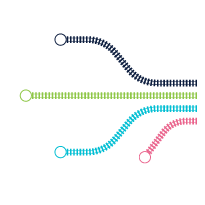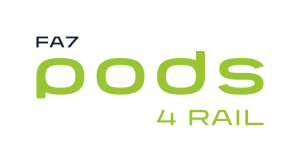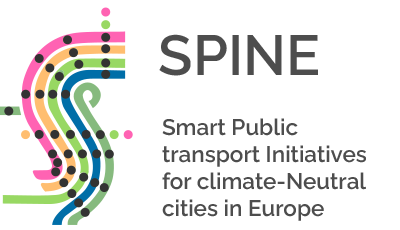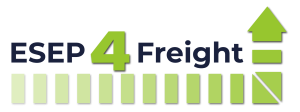Projects
As a Network of Excellence, EURNEX is a suitable project partner for introducing the contribution of selected stakeholders, target users platforms and high level experts in the projects discussions and workshops. EURNEX participates in selected projects and coordination actions, having the aim to reinforce the participation of academia and science throughout its network of excellent experts.
Navigate on the tabs to know more about our project activities.
Ongoing & Upcoming Projects:
AUTOMOTIF. „AUTOMATION TOWARDS MULTIMODAL TRANSPORTATION AND INTEGRATION OF FREIGHT“
HORIZON-CL5-2023-D6-01-07
18 Partners , Starting date: 1 June 2024
Project duration: 36 months
AutoMoTIF will focus on the development of strategies, business and governance models, regulatory recommendations and synergies that will enable the integration and interoperability of automated transport systems and solutions towards the operational automation of multimodal cargo flows and logistics supply chains in the intra-European network. It will list the gaps – both regulatory and technological – that are currently identified in automated transport technologies and logistics operations between modes and hubs through the analysis of automation demand and supply in multimodal transportation (users vs market). AutoMoTIF will follow an inclusive model to ensure that user and community needs are properly addressed and innovations are aligned with their expectations. UCs and scenarios will focus on real challenges and gaps in seamless automated logistics that will be simulated in real settings and different geographical locations. The results of the UCs will be used to set up a master scenario addressing the end-to-end delivery of goods using highest degree of automation possible. The outcomes from current practices will be analysed, leading to the assessment of benefits that can be gained by exploiting automated transport means to seamless multimodal automatic cargo transport and vice versa. These benefits will be defined and analysed based on their social, environmental and economic impact, such as decreased emissions and congestion, improved working conditions and safety, as well as reduced logistics and freight transport costs, with the SSH aspects being a priority. AutoMoTIF will contribute to the enhancement of synergies among sectors and stakeholders, following European priorities, strategic partnerships, such as CCAM, Zero Emission Waterborne Transport and EU Rail JU to ensure that transferability of expected outcomes.
XCROSS start 2024
PHD EU-RAIL start 2024
TRAVEL WISE (start 2024)
Academics4Rail coordinated by EURNEX is a new research project funded by Europe’s Rail with EUR 1.807.237,50, launched on the 1st September 2023 and continuing over 42 months. The project held a kick-off meeting on the 9th September in Berlin, gathering the whole consortium of 25 partners from ten countries.
Academics4Rail will create a stable and durable scientific community that in an organised way will share and exchange scientific knowledge with EU-Rail and ERRAC.
This knowledge is shared at different levels (strategic to concrete technical areas) and for different purposes.
When it comes to the strategic level the scientific community intends to share knowledge with ERRAC and EU-Rail with the purpose of optimising the program for railway research providing insights of fund use, existing themes for research and scientific necessities for the future of European railways. It also supports the methodology of program assessment using KPIs and impact estimation towards the objectives set out in the EU-Rail masterplan.

The areas are:
- PhD1 Aerodynamics of freight trains. Politecnico de Milano.
- PhD2 Electromagnetic compatibility. Universidad Politecnica de Madrid.
- PhD3 Additive Manufacturing in wheel re-profiling. Universidad del Pais Vasco/Euskal Herriko Unibertsitatea.
- PhD4 Digital communications for virtual coupling. Université Gustave Eiffel.
- PhD5 Prognostics and health management approach for railway asset maintenance. Luleå Tekniska Universitet.
- PhD6 AI-based Driving Assistance. Uinversité Polytechnique Hauts-De France.
SPINE aims to accelerate progress towards climate neutrality by integrating public transport systems with new mobility services, sharing schemes, active transport modes, and micromobility.
The SPINE consortium consists of experienced professionals, including transport engineers, public transport operators, computer scientists, data analysts, transport modelers, social scientists, urban planners, policy analysts, and software providers, who will provide a comprehensive approach to the challenges, scope, and expected impact of the project.




